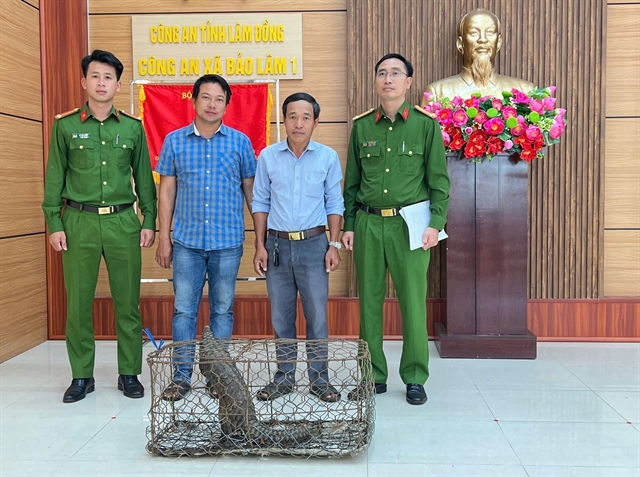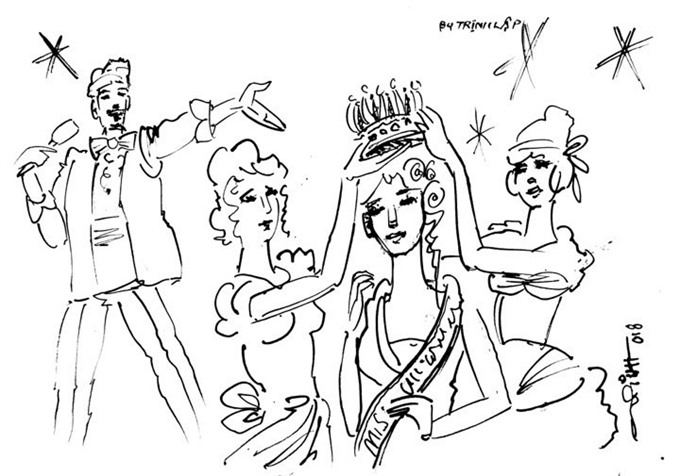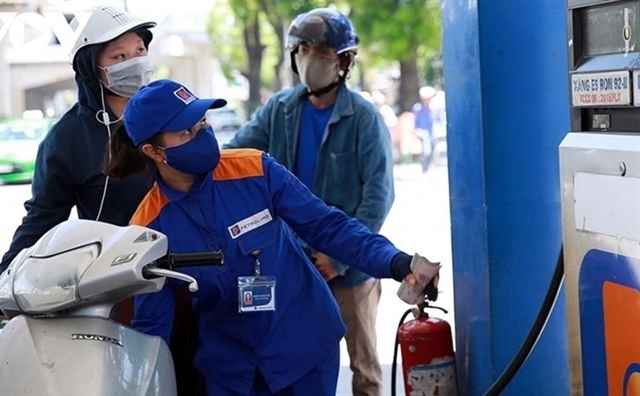 Talk Around Town
Talk Around Town

People may disagree with a decision to award a singer, actor or beauty queen. But it is not acceptable that this subjectivity descends into shameful, discriminatory criticism, stained with racist overtones.
 |
| Illustration by Trịnh Lập |
Hoàng Anh
That beauty lies in the eyes of the beholder is not something worth debating.
It is understandable, therefore, that people disagree with a decision to award a singer, actor or beauty queen. But it is not acceptable that this subjectivity descends into shameful, discriminatory criticism, stained with racist overtones.
Unfortunately, winner of the Miss Universe Viet Nam 2017 title, H’Hen Niê, had to face such a backlash recently.
Soon after H’Hen Niê was declared the winner, a reporter from a major newspaper made several comments on her ethnicity and skin colour on social media and they immediately went viral.
Although the man later apologized, I hope that he doesn’t get away with it. His comments were despicable and not worth repeating here.
It isn’t strange for a newly crowned beauty queen to attract some public scrutiny. At least H’Hen Niê knew that much. She deactivated her Facebook account soon after winning. Smart move. Who knows what people would have dug up in order to malign and shame her. As it is, even the general reactions do not reflect well on our society.
Let’s be very honest and look at why the public got so worked up over H’Hen Niê winning the crown.
A member of the Ê Đê ethnic group, offshoot of a larger Austronesian people who live in many parts of Southeast Asia, she has a darker skin tone with facial features atypical of the Kinh, the majority ethnic group in Việt Nam. Since she does not have that “typical Vietnamese look”, whatever that means, she shouldn’t be crowned the winner of a national beauty contest, went the general argument.
We do not have to dwell on whether H’Hen Niê is beautiful or not. She is Vietnamese, she took part in the competition, and she won. It takes courage to stand on that stage, to show yourself with confidence and believe that you are beautiful no matter what other people may tell you. More so if you are seen as “atypical.”
H’Hen Niê deserves the crown as much as any Kinh girl.
All forms of discrimination, including those based on race and colour, are not anything new, in Việt Nam or elsewhere.
Miss IIe de France 2016 Meggy Pyaneeandee can relate to H’Hen Niê. Pyaneeandee represented the region of Paris in Miss France 2017, and being a woman of colour, faced racist insults and questions. The critics had nothing on Pyaneeandee, except for the colour of her skin.
Pyaneeandee grew up in the part of Paris that is associated with crime and poverty. Against all odds, she went to Sciences Po, one of the most distinguished schools in Europe.
And when she became a top 10 contestant, she achieved her goal of delivering a speech in front of millions of people, encouraging disadvantaged people and immigrants like her family to work hard for their dreams.
Not superficial, anymore
It is almost too easy to just write off beauty pageants as superficial and commercialised events associated with practices that, at times, can be offensive and abusive towards women.
Women are showing it doesn’t have to be that way, and it is beautiful to see.
During the Miss Peru contest last November, the contestants turned the event, which was among many Latin American beauty pageants that are criticized as sexist and patriarchal, into an opportunity to raise public awareness on violence against women, a rampant problem in that part of the globe.
Instead of coming forward to introduce themselves and announce their bust, waist and hip measurements, the contestants presented hard-hitting statistics about violence against women, according to a report by The Guardian.
“My name is Camila Canicoba and I represent the department of Lima. My measurements are: 2,202 cases of femicide reported in the last nine years in my country,” said the first.
“My name is Karen Cueto and I represent Lima and my measurements are: 82 femicides and 156 attempted femicides so far this year,” said the second.
The eventual winner of the competition, Romina Lozano, said her “measurements” were “3,114 female victims of trafficking registered since 2014”.
By turning an event around the Peruvian women managed to deliver an important message to a large number of people. The event concluded with the contestants being asked what law they would change to combat violence against women. While there is still much to do, the women managed to show that even beauty pageants, traditionally viewed as sexist and superficial, can be used to further feminist causes.
Let us hope that H’Hen Niê, as the first person from the Ê Đê ethnic minority to be crowned in a Miss Universe Vietnam event, can also highlight important issues facing her community. The Ê Đê, who number just 340,000, are among the poorest and most disadvantaged ethnic communities in the country.
While hoping that she becomes known both for her beauty and her voice and contribution to society, we should remember this: her critics have proved that it is not her beauty, but their appreciation that is skin deep.
And it is their own ugliness that has been exposed. — VNS




